- News
- Reviews
- Bikes
- Accessories
- Accessories - misc
- Computer mounts
- Bags
- Bar ends
- Bike bags & cases
- Bottle cages
- Bottles
- Cameras
- Car racks
- Child seats
- Computers
- Glasses
- GPS units
- Helmets
- Lights - front
- Lights - rear
- Lights - sets
- Locks
- Mirrors
- Mudguards
- Racks
- Pumps & CO2 inflators
- Puncture kits
- Reflectives
- Smart watches
- Stands and racks
- Trailers
- Clothing
- Components
- Bar tape & grips
- Bottom brackets
- Brake & gear cables
- Brake & STI levers
- Brake pads & spares
- Brakes
- Cassettes & freewheels
- Chains
- Chainsets & chainrings
- Derailleurs - front
- Derailleurs - rear
- Forks
- Gear levers & shifters
- Groupsets
- Handlebars & extensions
- Headsets
- Hubs
- Inner tubes
- Pedals
- Quick releases & skewers
- Saddles
- Seatposts
- Stems
- Wheels
- Tyres
- Health, fitness and nutrition
- Tools and workshop
- Miscellaneous
- Cross country mountain bikes
- Tubeless valves
- Buyers Guides
- Features
- Forum
- Recommends
- Podcast
review
£369.99
VERDICT:
Fab general use leisure and commuting bike that proves price isn't always an indication of performance
Excellent ride quality
1x drivetrain is swift and secure
Surprisingly comfortable
Adjustable stem is a bit low-rent
Rim brakes suffer in wet weather
Gearing range is limited
Weight:
12,510g
Contact:
At road.cc every product is thoroughly tested for as long as it takes to get a proper insight into how well it works. Our reviewers are experienced cyclists that we trust to be objective. While we strive to ensure that opinions expressed are backed up by facts, reviews are by their nature an informed opinion, not a definitive verdict. We don't intentionally try to break anything (except locks) but we do try to look for weak points in any design. The overall score is not just an average of the other scores: it reflects both a product's function and value – with value determined by how a product compares with items of similar spec, quality, and price.
What the road.cc scores meanGood scores are more common than bad, because fortunately good products are more common than bad.
- Exceptional
- Excellent
- Very Good
- Good
- Quite good
- Average
- Not so good
- Poor
- Bad
- Appalling
Don't judge a bike by its marketplace – this might be an affordable hybrid from family cycling expert Dawes, but the Discovery 201 combines a lively compact aluminium frame with excellent 1x Shimano drivetrain to create a bike that will inspire a smile on your commute or weekend potter.
Although at road.cc we normally start bike reviews with a full description of ride quality, let me at least give you a brief idea of my thoughts and two main prejudices going into this test because, I suspect, some of you will share at least one of them.
> Find your nearest dealer here
First of all, I'm a long-time fan of Dawes Cycles, not least because my 25-year-old Galaxy has taken me from Channel to the Med twice (shameless plug – read all about it here). On the other hand, I'm as much a bike snob as anyone – how good could a sub-£400 bike from an old-school British family cycling manufacturer really be?
On balance, I think one prejudice cancels out the other, so you can believe me when I say that the £369.99 Discovery 201 rides a lot, lot better than you'd probably expect.
Even in wet weather and headwinds, this is a fun and 'enthusiastic' bike to pedal. Power transfer isn't compromised and while overall weight at 12.5kg is good enough at this point in the market, the Disco actually rides as sprightly as a lighter hybrid. Acceleration from a standstill is easy and there's a definite satisfaction to be had as you spin up to higher speeds.
Steering and control match this positive power delivery, and although the Discovery 201 is certainly happy at a cruise, it's probably most fun when being put through more active tests. The direct front end combines well with good overall balance to make handling surefooted, even in wet conditions. Weaving through traffic is no problem.
With such effective dynamic performance, it's tempting to expect comfort to take a hit, but the Discovery 201 fares surprisingly well here, too. Of course, there's only so much a compact alloy frame can do to insulate you from road shocks, but it's easy to settle back into the saddle and assume a more laidback rhythm, even if one eye does have to keep alert for road bumps and potholes.
If I had to criticise anything, it would be that the Disco encourages a fairly head-down position, and keeping your head up doesn't feel quite as natural as on some other urban bikes.
Frame
A great deal of the Discovery 201's positive points are thanks to the 6061 hydroformed aluminium frame. There's no point trying to suggest this is at the cutting-edge of hybrid technology, but there is a lot to be said for expertise and well-honed practice.
Simply put, manufacturers know so much about making aluminium bikes these days that they can make them well, even at a budget. So while other brands may try to seduce you with the next big thing, there is plenty of value to be had with manufacturers, such as Dawes, whose products rely on proven design and construction.
That means you'll find no undersized rear triangles here. The Discovery 201 is a tried-and-tested compact frame shape with simple round profiled down and seat tubes, and a smattering of square-ish sides at the top tube.
There are also few luxuries, so all cabling is on display, while the bottom bracket is a sealed cartridge square taper design.
Given Dawes's long history in touring bikes and the relative front-end comfort of the Discovery 201, I wouldn't have been surprised had a steel fork been fitted, but this is actually quite a slender aluminium offering. It does its job well, with just a little bit of rake to soften the ride but keeping control on point.
Drivetrain and brakes
Another reason for the Discovery 201's enthusiastic ride performance is the very sensible gearing. By using a 1x system with an 8-speed cassette, Dawes is able to bring down weight, cost and maintenance while also adopting an in-vogue spec choice.
The Shimano Altus setup worked faultlessly with swift and secure gear changes, while the combination of 42t chainring and 11-32t cassette offers decent gearing options for moderately rolling routes, although tough climbs may leave you running out of ratios.
Proving that cost-cutting can be the mother of good speccing, the fact that Dawes fits the same 170mm cranks throughout the range is good news for tall riders looking for the benefit of slightly shorter cranks – personally, I like using them a lot.
I tested the Discovery 201 in less than ideal conditions and when the roads are wet, its unbranded alloy linear-pull V-brakes aren't the best options. However, I found feel or modulation wasn't too bad taking into account rim brakes' natural limitations, and while I'd always prefer hydraulic discs, if you ride and use these sympathetically, they're far from being a major weakness.
In fact, the biggest drawbacks are the ear-ringing block-on-rim squeak in wet weather and the rudimentary-looking brake levers.
Components
Speaking of which, while most of the Disco 201 strives and largely succeeds in overcoming the expectations of its budget background, some of the bike's indisputable entry-level controls are hard to overlook. The adjustable quill stem is a veritable siren of cost-consciousness and the two-bolt faceplate and slightly low-rent nature instantly reminds you that, however good the ride quality, there are limits to the Discovery's intended uses. Indeed, the stem is the only part of the bike that doesn't quite feel up to the job.
The handlebar is an odd addition as it seems just a little narrow at 620mm. While many brands are only too happy to have hybrid riders' arms akimbo with a 640mm, 660mm or even a 680mm bar, Dawes has come over all coy and tightened things up at the front. Personally speaking, I don't mind it at all. I quite like being a little more streamlined, and narrow bars offer slightly more lively control.
Special mention should also go to the Velo grips with their comfortable but supportive palm rests.
The saddle was surprisingly effective, too, and more than good enough to get you started.
However, one thing I would advise every new Disco owner to do is swap out the included rubber surfaced pedals. Despite using them with decent Giro Jacket II flat shoes I found my feet slipping in wet weather. Whack on a set of cheap pinned pedals and your shins will be forever grateful.
Finally, the Dawes-branded rims and unmarked hubs do a decent job. At this point in the market, often the most you can hope for is that wheel choice doesn't detract from the bike's other qualities, and the hoops here do well enough.
Meanwhile, the 35mm Schwalbe Citizen tyres with puncture protection are fine options for commuting with a fair balance of grip, efficiency and comfort.
Value and conclusion
The last sub-£500 hybrid I tested was the Specialized Sirrus Alloy which features a fantastic frame but was a real let down in spec and costs £425, more than £50 above the Dawes. That said, there's a great deal of competition around the £400 mark, with some big-name brands such as Pinnacle, Cannondale and Trek all vying for attention.
Compared with the entry-level Trek FX 1 at £350 – which comes with Shimano Altus rear gears and a triple Shimano Tourney front setup, Formula/Bontrager wheels and branded Tektro rim brakes – the Discovery 201 looks like only moderately decent value.
However, I don't know how the Trek performs on the road, and that's where this Dawes really shines. While it's not innovative or clever, and spec sheet warriors will roll their eyes at some of the componentry, it's hard to fault the Discovery 201 in terms of its ride characteristics. Indeed, rather than being just 'the best you should expect', it's a case of being 'far better than you might imagine'.
> Buyer’s Guide: 11 of the best hybrid bikes
If you're looking for a dependable and really well-rounded commuting and leisure bike that won't break the bank, Dawes has a little gem here.
Verdict
Fab general use leisure and commuting bike that proves price isn't always an indication of performance
road.cc test report
Make and model: Dawes Discovery 201
Size tested: 20in
About the bike
List the components used to build up the bike.
Frame: Dawes 6061 hydroformed T6 aluminium
Fork: Dawes 6061 unicrown aluminium straight blades
Headset: 1 1/8in threaded
Bottom Bracket: Square taper cartridge 123mm axle
Handlebar: Dawes riser bar, 30mm rise, 6 degree back sweep, 620mm wide
Stem: Alloy adjustable quill stem, 90mm extension (16', 18'), 110mm extension (20', 22')
Grips: Velo comfort grips, double density
Shifters: Shimano Rapidfire Plus SL-M315 8spd
Rear Derailleur: Shimano Altus RD-M280 8spd
Freewheel: Shimano Cassette CS-HG31, 8spd, 11-32t
Chainwheel: 170mm alloy crank, 42t
Chain: KMC Z-8.1
Brakes: Alloy V-brakes linear pull
Brake levers: Alloy lever
Pedals: 9/16in
Hubs: 36H quick release alloy
Rims: Double wall alloy with CNC braking surface
Tyres: Schwalbe Citizen with Puncture Protection 700 x 35mm
Seat Post: Alloy micro adjust, 27.2mm x 350mm
Saddle: Dawes Custom Trekking Saddle
Tell us what the bike is for and who it's aimed at. What do the manufacturers say about it? How does that compare to your own feelings about the bike?
The Discovery 201 is designed to be a general purpose leisure and commuting bike.
Dawes says: "Newly developed for 2020, we've stripped the Discovery 201 back to become a simple, lightweight and low maintenance machine. Ideal for the daily commute or weekend leisure cycling, we've used our tried and tested lightweight 6061 alloy frame, quality 8spd Rapidfire Shimano Altus gearing, robust double-wall quick release alloy wheels and hard wearing Schwalbe Road Cruiser tyres with K-Guard puncture protection. If you're not venturing too far off road, what else do you really need?" I can't argue with any of that, except the tyres are Schwalbe Citizen not Road Cruiser."
Where does this model sit in the range? Tell us briefly about the cheaper options and the more expensive options
The Discovery range kicks off with the Discovery Trail at £269.99 and tops out with the Discovery 301 at £499.99. The Discovery 201 sits just above the middle of the range, but as it is the only 1x Discovery, it also has its own unique position.
Frame and fork
Overall rating for frame and fork
7/10
Tell us about the build quality and finish of the frame and fork?
Nicely put together, smartly finished and does the job very well.
Tell us about the materials used in the frame and fork?
6061 hydroformed aluminium for both frame and fork.
Tell us about the geometry of the frame and fork?
It's a traditional compact frame shape with just a little rake in the fork. All very straightforward.
How was the bike in terms of height and reach? How did it compare to other bikes of the same stated size?
Pretty much as expected. As it features an adjustable quill stem, there is a small amount of height and reach tweaking possible.
Riding the bike
Was the bike comfortable to ride? Tell us how you felt about the ride quality.
Surprisingly comfortable. An aluminium frame is always going to feel fairly stiff, but the Discovery 201 is pretty good at keeping the rider protected.
Did the bike feel stiff in the right places? Did any part of the bike feel too stiff or too flexible?
The Discovery 201 felt suitably stiff – no flex in the frame, although the adjustable stem is a bit lightweight.
How did the bike transfer power? Did it feel efficient?
Excellent power transfer – no complaints here.
Was there any toe-clip overlap with the front wheel? If so was it a problem?
No.
How would you describe the steering? Was it lively neutral or unresponsive? Fairly lively.
Tell us some more about the handling. How did the bike feel overall? Did it do particular things well or badly?
Very secure but not boring handling. The bike goes where you want it and without delay.
Which components had the most effect (good or bad) on the bike's comfort? would you recommend any changes?
I think the fork worked well to enhance comfort, and the 35mm tyres do a good job too.
Which components had the most effect (good or bad) on the bike's stiffness? would you recommend any changes?
I'd swap the stem for something rigid rather than adjustable.
Which components had the most effect (good or bad) on the bike's efficiency? would you recommend any changes?
Nothing I can think of.
Rate the bike for efficiency of power transfer:
8/10
Power transfer was really very solid.
Rate the bike for acceleration:
8/10
The Discovery 201 seems to encourage getting up to speed.
Rate the bike for sprinting:
7/10
Not at all bad for a budget hybrid.
Rate the bike for high speed stability:
7/10
Felt secure at high speeds.
Rate the bike for cruising speed stability:
8/10
One of the Disco's strong suits.
Rate the bike for low speed stability:
6/10
Fairly safe and secure at low speed.
Rate the bike for flat cornering:
8/10
Takes corners well.
Rate the bike for cornering on descents:
7/10
Head-down position handles descents well.
Rate the bike for climbing:
6/10
It's quite happy to be manhandled up climbs and easy to get into a rhythm, although the 1x drivetrain does restrict gear choice.
The drivetrain
Rate the drivetrain for performance:
8/10
Very assured performance. For the money, it worked exceptionally well.
Rate the drivetrain for durability:
8/10
As it's a 1x system, it should require far less maintenance than something with a front mech.
Rate the drivetrain for weight:
8/10
Perfectly decent, especially as there's no front mech or further chainrings.
Rate the drivetrain for value:
8/10
Tell us some more about the drivetrain. Anything you particularly did or didn't like? Any components which didn't work well together?
I really enjoyed this drivetrain – so simple, yet perfect for leisure and especially urban riding.
Wheels and tyres
Rate the wheels for performance:
6/10
Nothing special, but they certainly don't detract from the rest of the bike.
Rate the wheels for durability:
6/10
They seem rock solid.
Rate the wheels for weight:
5/10
Par for the course.
Rate the wheels for comfort:
7/10
Performed well when it came to comfort.
Rate the wheels for value:
5/10
As you'd imagine on a bike at this price.
Tell us some more about the wheels.Did they work well in the conditions you encountered? Would you change the wheels? If so what for?
While the Discovery 201's wheels look like what you'd expect on a bike at this point at the market, I'd say their performance was actually better average.
Rate the tyres for performance:
8/10
Very good general use road tyres.
Rate the tyres for durability:
7/10
With puncture protection, they should last.
Rate the tyres for weight:
5/10
Standard.
Rate the tyres for comfort:
8/10
I thought they did well.
Rate the tyres for value:
7/10
As with the wheels, better than average at this point of the market.
Tell us some more about the tyres. Did they work well in the conditions you encountered? Would you change the tyres? If so what for?
The Schwalbe Citizens offered decent grip and efficiency, and good comfort. Overall, quite nice tyres to start cycling with.
Controls
Rate the controls for performance:
5/10
Not impressed with the adjustable stem and pedals are slippy in rain – otherwise, everything is decent with saddle and grips being better than average.
Rate the controls for durability:
5/10
Most is fairly simple stuff; early days but it's not the highest quality.
Rate the controls for weight:
5/10
Not particularly light.
Rate the controls for comfort:
7/10
Bar grips are very supportive and quite comfortable. Saddle is good, too.
Rate the controls for value:
6/10
Pretty standard kit for price point, although saddle and grips lift things slightly.
Tell us some more about the controls. Any particularly good or bad components? How would the controls work for larger or smaller riders?
I liked the narrow bar, but others migh well prefer to have their hands further apart, so a bar change might be on the cards. Saddle isn't at all bad. Adjustable stem lets the side down.
Anything else you want to say about the componentry? Comment on any other components (good or bad)
The unbranded aluminium V-brakes actually performed very well but they can't offer the overall performance of discs, and especially not hydraulic discs.
Your summary
Did you enjoy riding the bike? Yes
Would you consider buying the bike? Yes
Would you recommend the bike to a friend? Yes
How does the price compare to that of similar bikes in the market, including ones recently tested on road.cc?
At £425, the Specialized Sirrus Alloy features a fantastic frame but is a real let down in spec terms and costs more than £50 more than the Dawes. That said, there's a great deal of competition around the £400 mark, with some big-name brands such as Pinnacle, Cannondale and Trek all vying for attention. Compared with the entry-level Trek FX 1 at £350 – which comes with Shimano Altus rear gears and a triple Tourney front setup, Formula/Bontrager wheels and branded Tektro rim brakes – the Discovery 201 looks like only moderately decent value.
Rate the bike overall for performance:
9/10
Rate the bike overall for value:
6/10
Use this box to explain your overall score
While, on the face of it the Dawes Discovery 201 looks like a fairly standard offering at this point in the market, the combination of smart, tried-and-tested aluminium frameset and excellent 1x Shimano Altus gears means it's actually a supremely satisfying bike to ride and well exceeds expectations.
About the tester
Age: 39
I usually ride: Islabikes Beinn 29 My best bike is: 25-year-old Dawes Galaxy
I've been riding for: Over 20 years I ride: Most days I would class myself as: Experienced
I regularly do the following types of riding: commuting, touring, sportives, general fitness riding, mtb, Leisure






































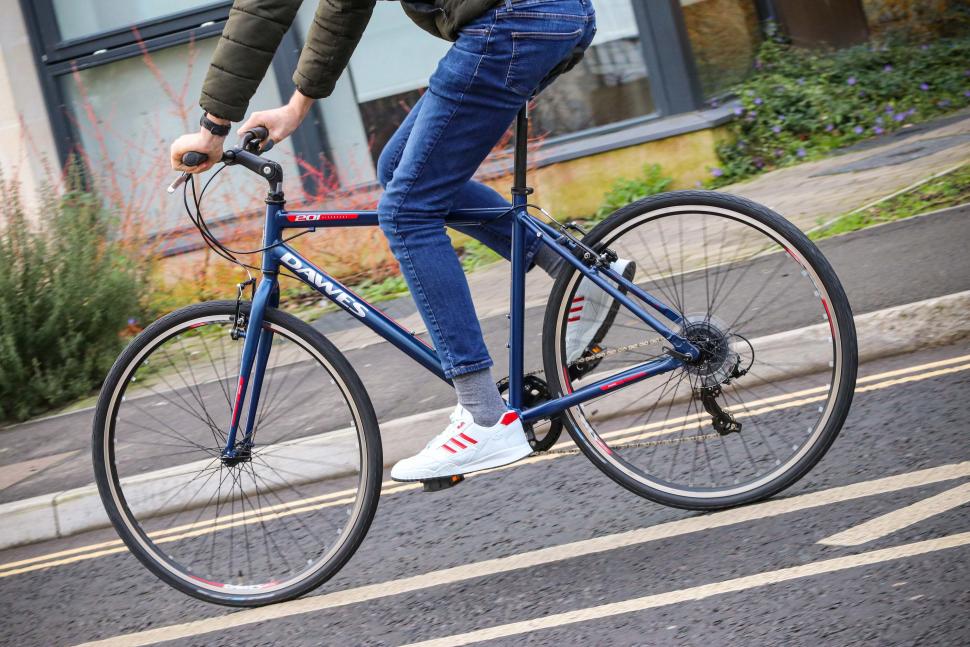


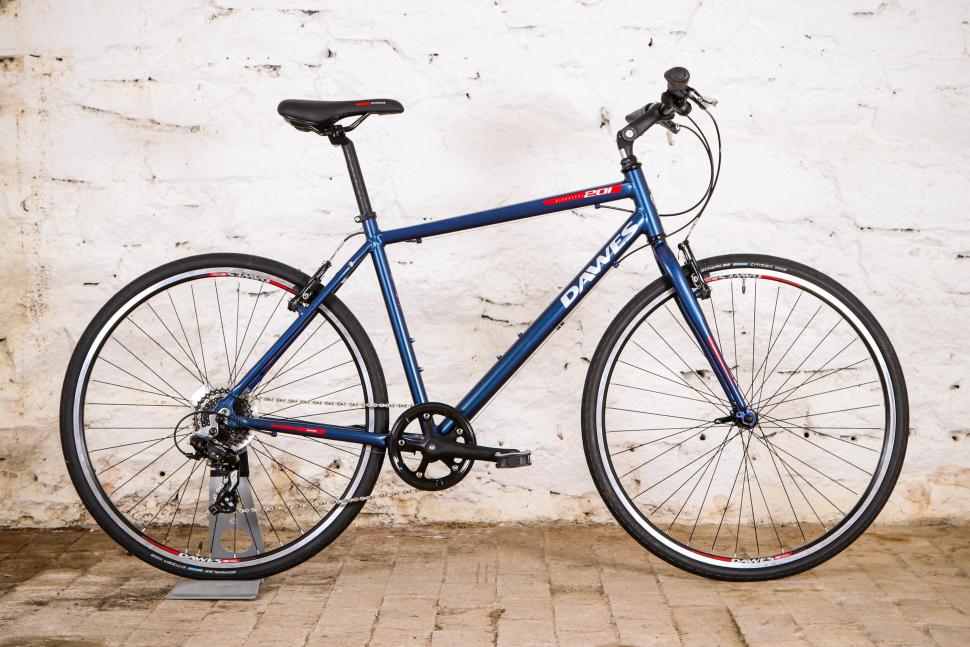

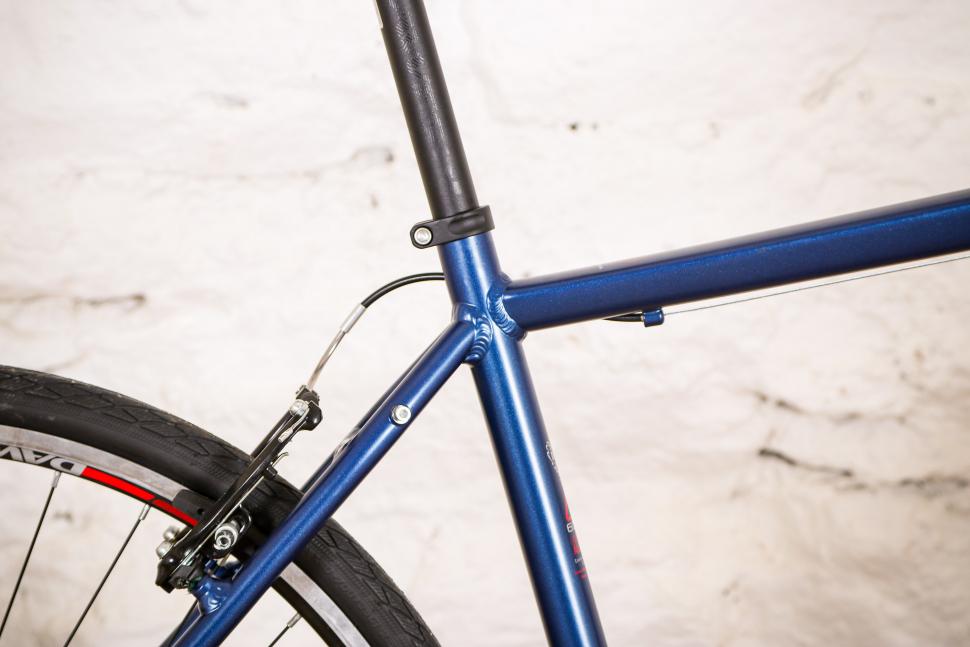

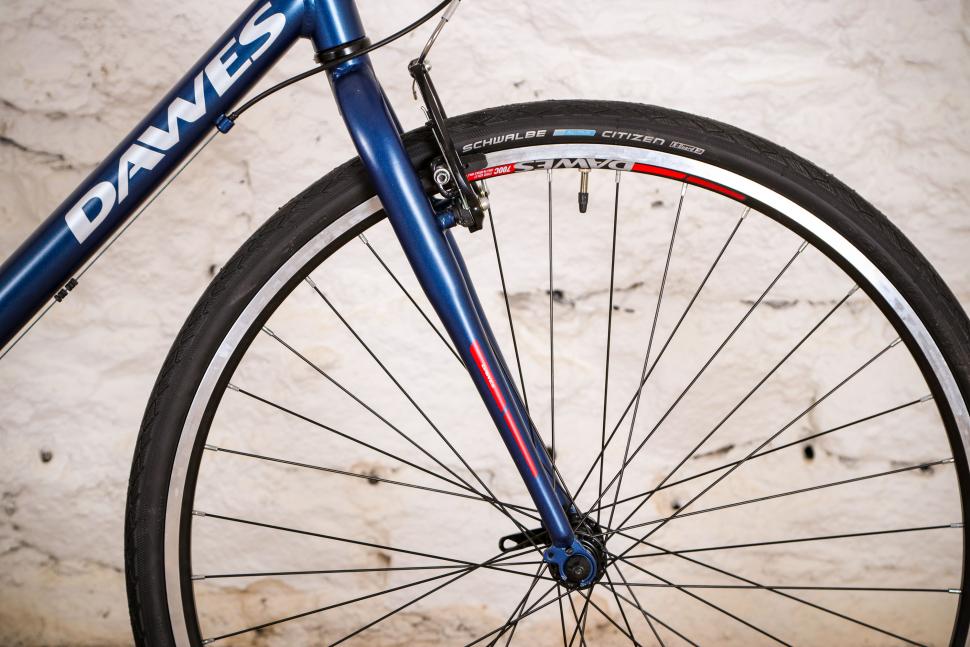
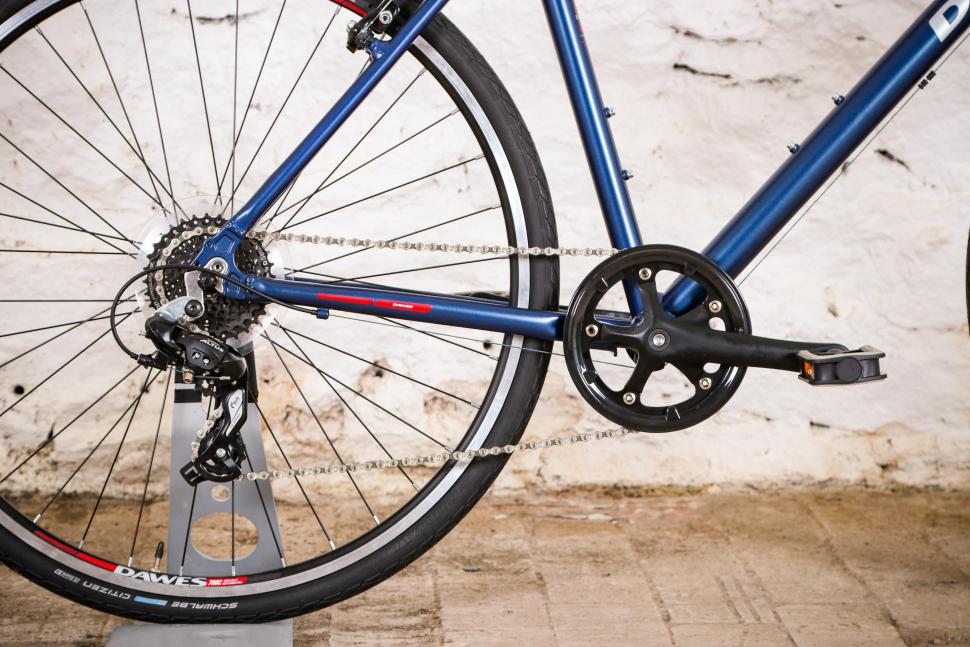
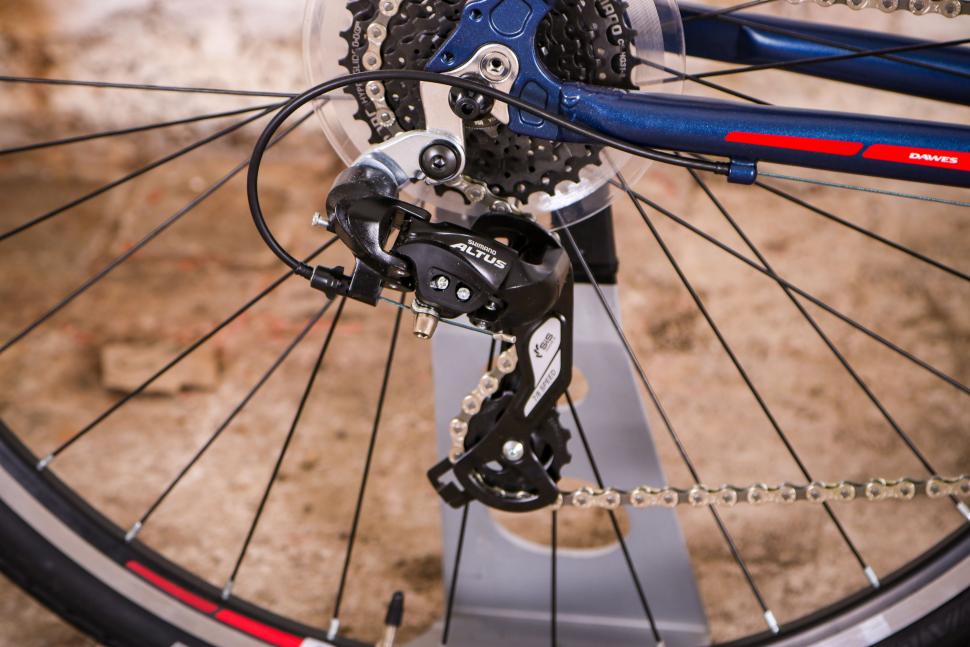


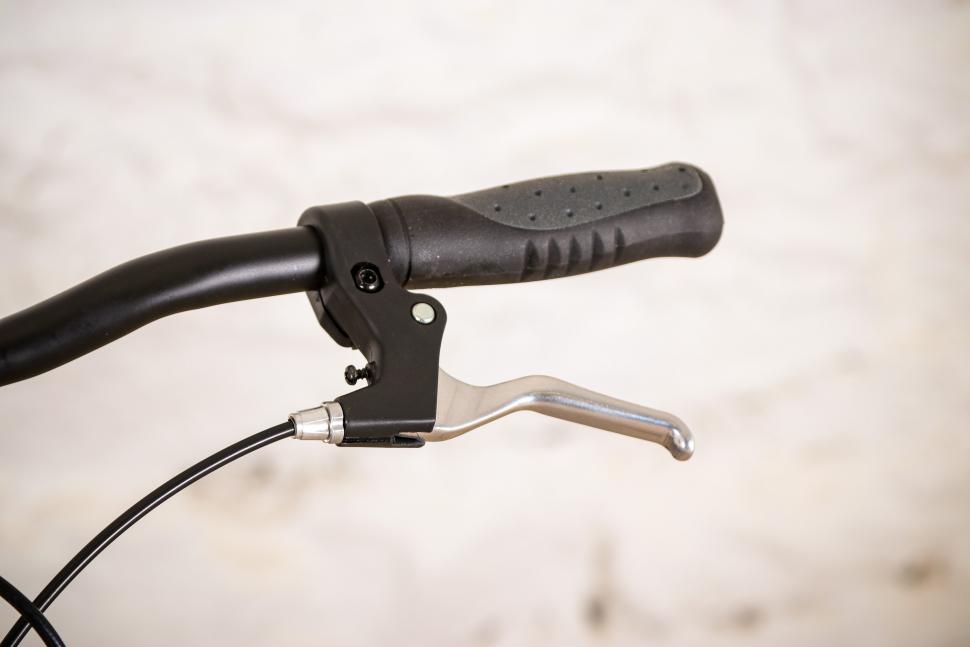
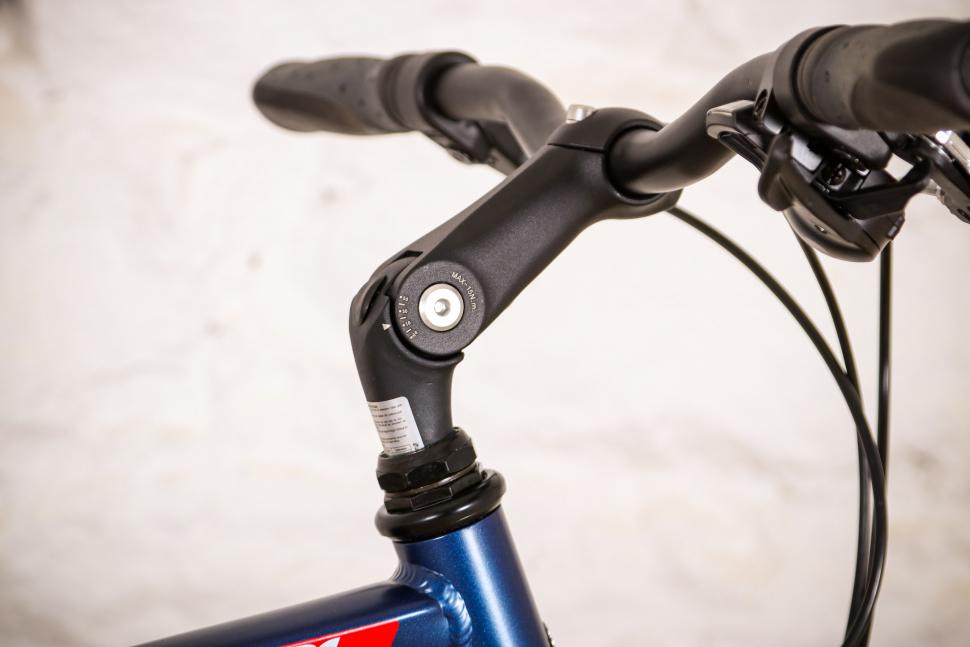
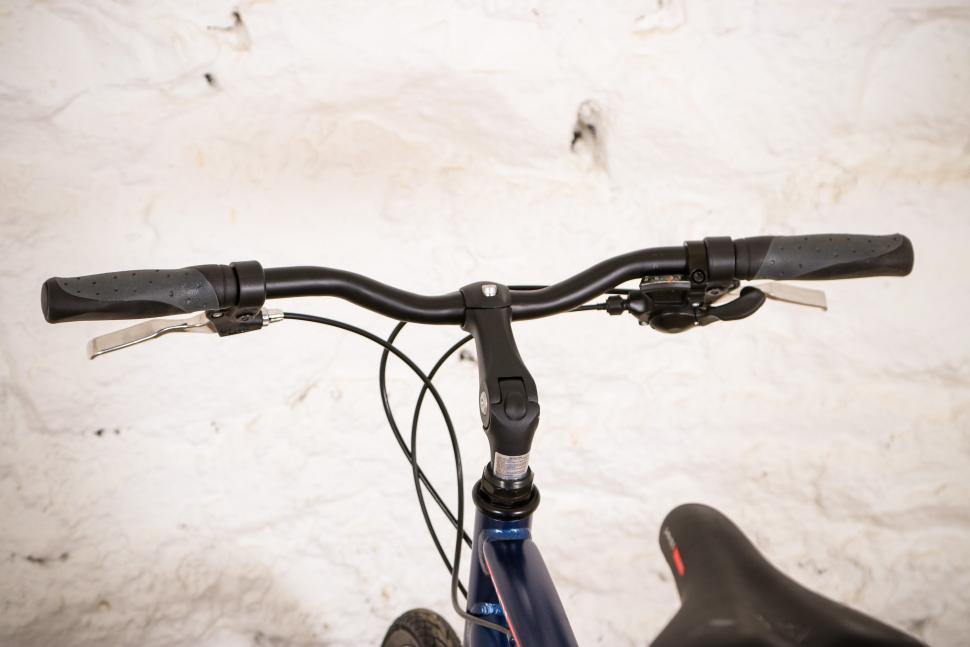

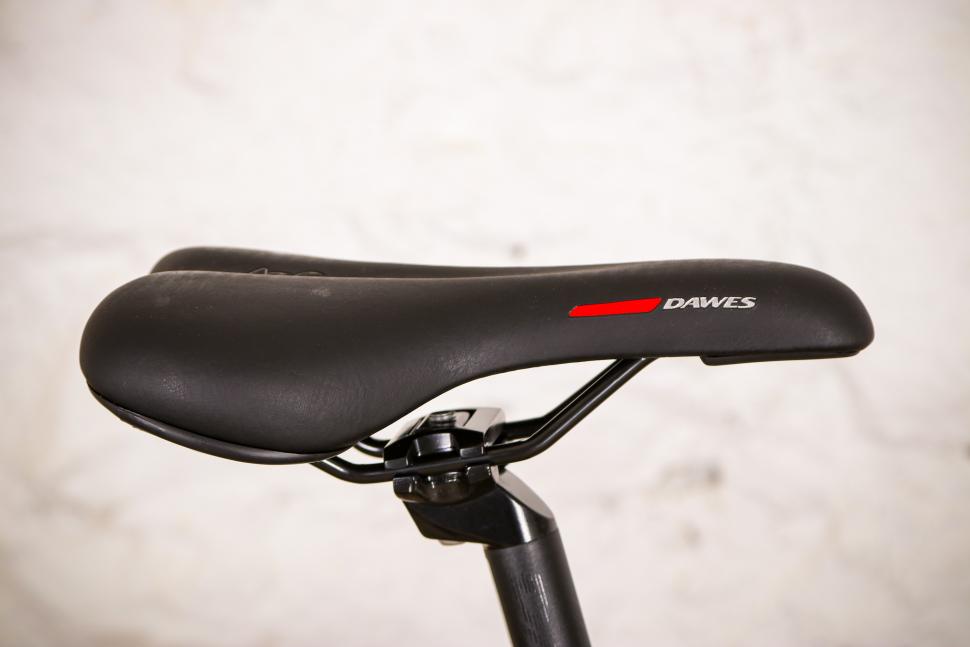
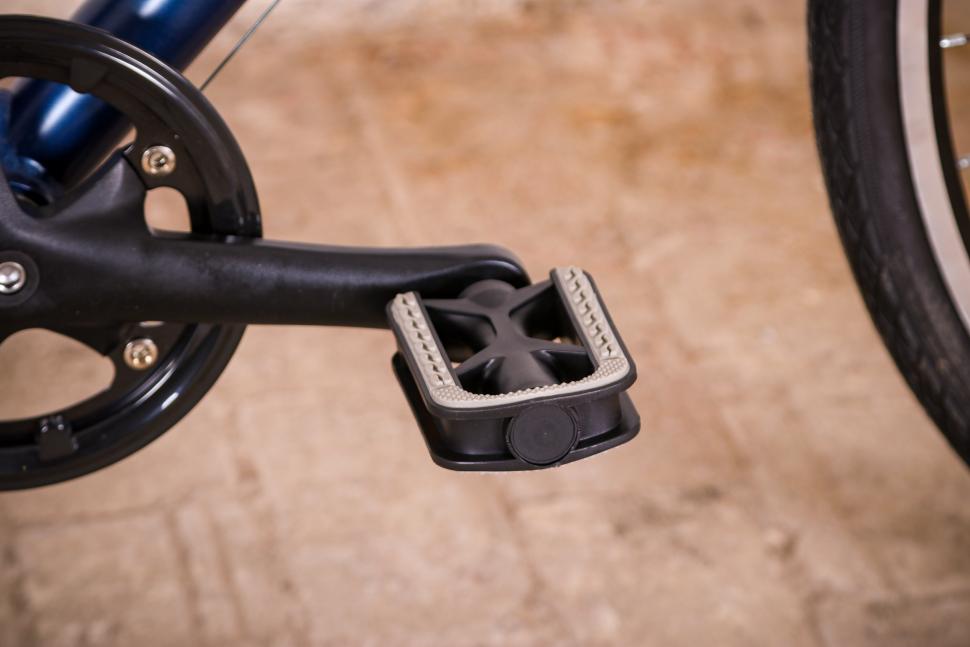
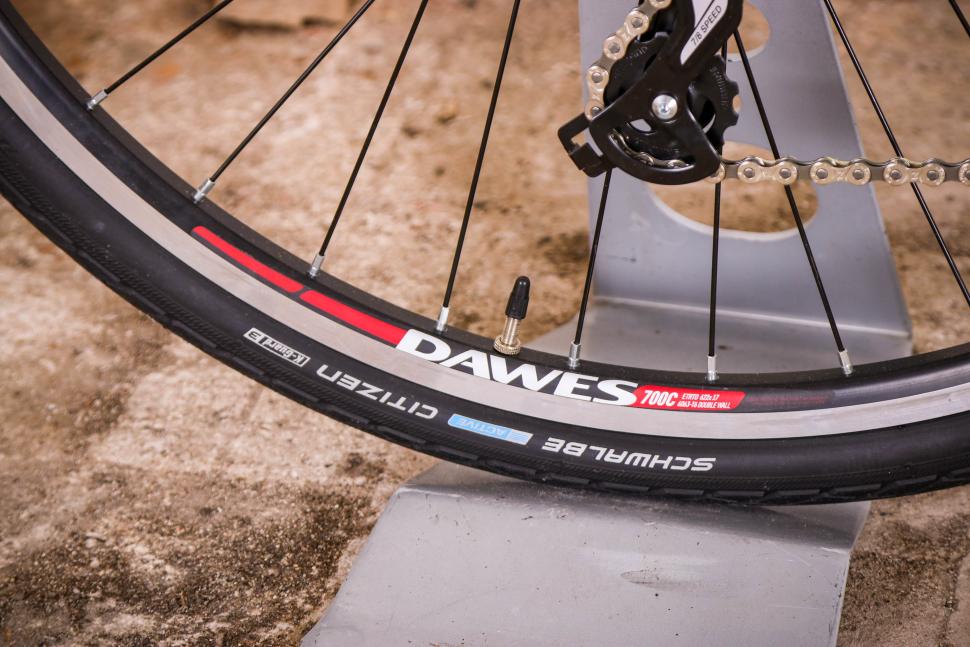
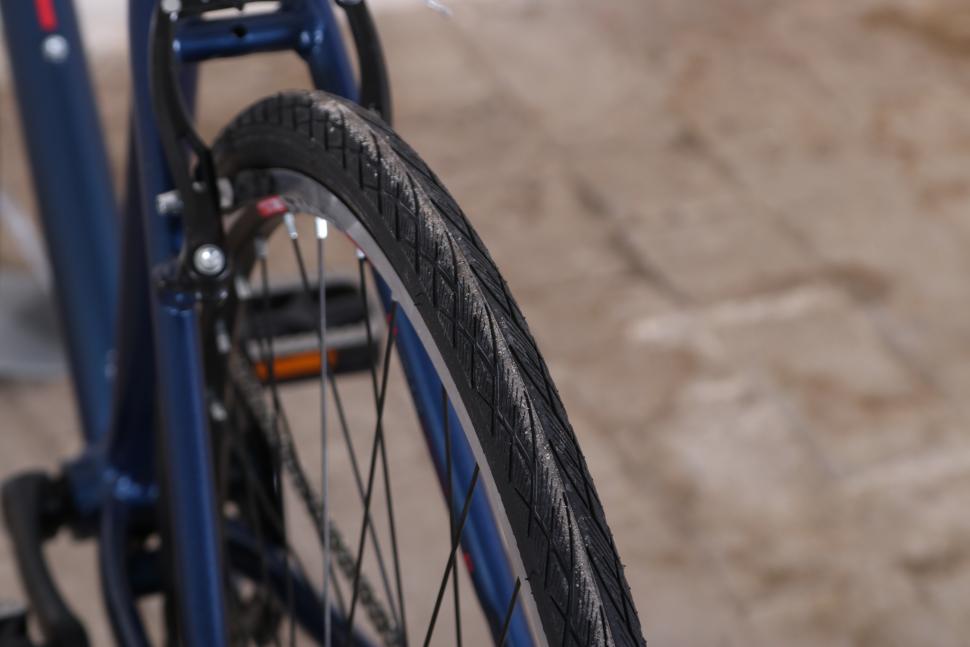
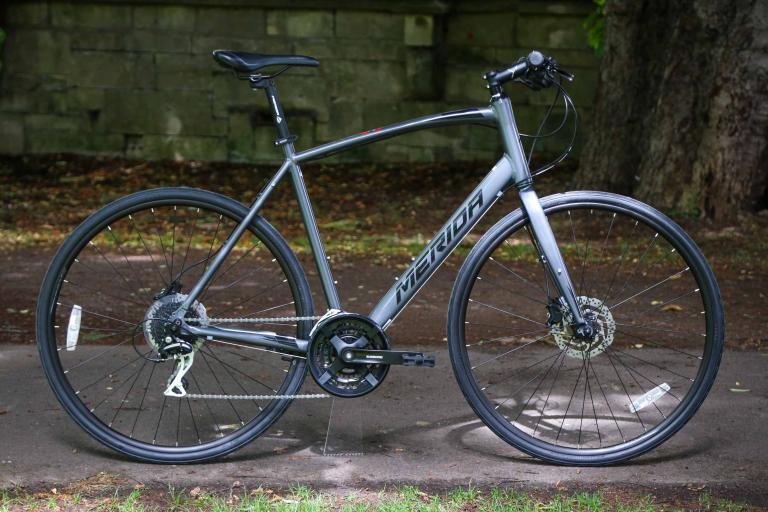
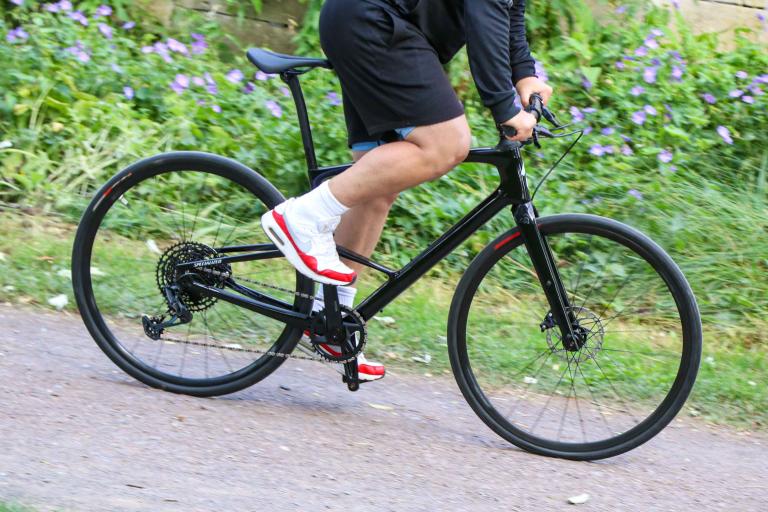
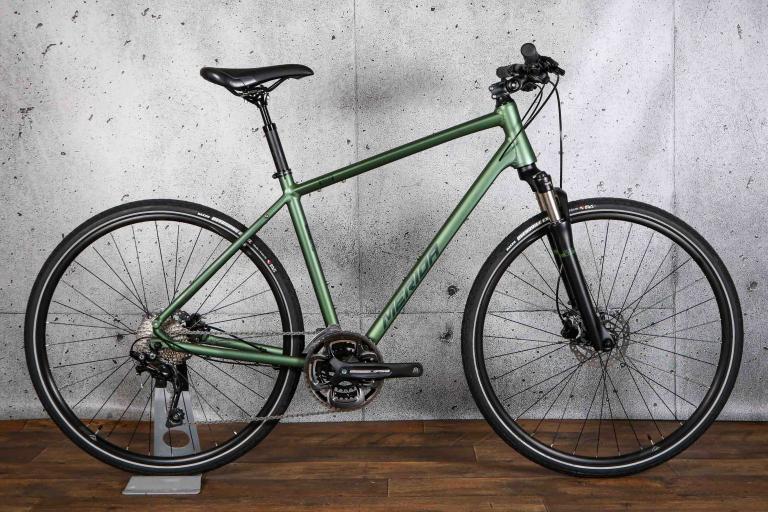
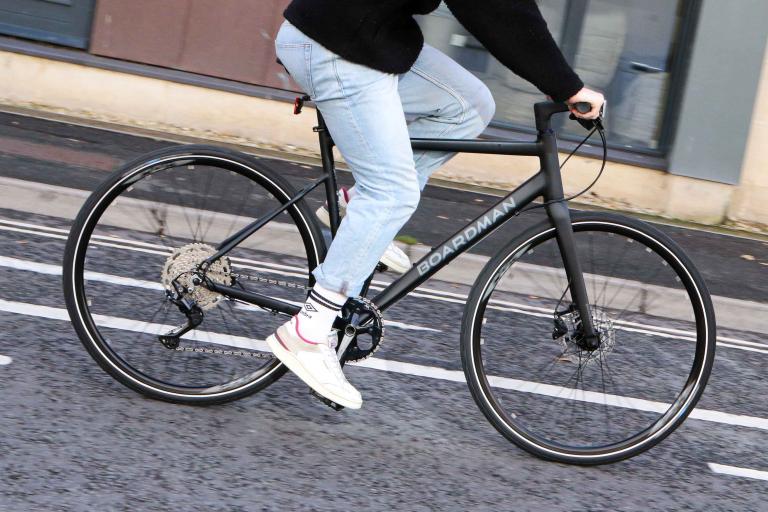
The road network is not a sports venue or play park. If people want to race on it, whether on a car motorbike, bicycle or soapbox, then they need...
Disgraceful sentence that reinforces the contempt towards cycling. I hope both the driver and judge suffer a serious illness.
I think it has got better in some locations. For example, Baldwin Street and Victoria Street. Bus gates there have improved conditions greatly for...
" in what appears to be two random, completely unprovoked attacks."...
You could get away with much less turning area required if you go for a Kakeya set...
Any chance we could have bike reviews for people with normal disposable incomes? My ti bike cost £2k, brilliant, versatile.....
I built a gravel bike last summer - a Ridley Kanzo Fast with Campag Ekar - and have used it through the winter with mudguards for club runs and the...
It's only for a minute
Another Conservative bemused at how but a Conservative policy is turning out
would be good to see you test the Newmen wheels the weight/price ratio is extremely good and suggests that europeans can match the chinese in this...